Interview
Interview: Dorsa Ahari
In conversation with Dorsa Ahari about the role of collage in relation to perceptions of feminism and self-healing.
Why do you produce images, what is the driver for you to create?
Personally, the idea behind finding beauty in pain and power of the mind is what drives me to create and produce all of my art pieces – in fact, it’s my main point of inspiration.
I want to remove the notion that pain has no depth or meaning; as a society, we have this misconception that pain is a black hole that only drives more negativity and suffering – what we seem to misconceive is that most enlightened and wise individuals glow because of the depths of their suffering; because there were lessons through that pain; because ‘pain’ was the pivotal moment in time that showed them the light at the end of the tunnel. The more you succumb to your comfort zone, the more you are stuck in a loop of suffering; it is when you take a risk, a leap of faith in that pain, at that moment of time, that you begin the process of healing and growing – just as a caterpillar into a butterfly.
It is for this very reason that I create challenging art pieces in order to trigger the audiences’ mind – trigger in the sense that, I want to somehow encourage them to question their own thought processes (power of the mind) and push them to see the beauty of their own pain and not to be afraid of change.
What is your working pattern like? How do you work?
It is very rare that I start with an idea and get straight into it.
I have to feel something flowing within me; I sit down, open a magazine and start picking out and cutting pieces that are captivating to the eye.
I then begin to align the pieces together, like a puzzle, without a plan, I place them together and suddenly the idea starts to take shape. During this process there is something that begins to trigger my thought process – my subconscious takes charge of my body as a vessel to create from all the recent experiences that I had gained.
I like it this way as it is unpredictable, pure and beautiful. It’s me in my rawest form.
Do you use a sketchbook or journal? If so, can you talk about how you use this? Is it or your sketches a record of what you do or does it inform your approach and thinking?
Yes, I do have a journal. I always take notes of my thoughts, feelings, experiences; I take note of all those ‘ahaaa that’s why’ moments and use it as a guide towards to source of creativity – and most of the time they form the title of my work. My art is my diary.
Your work uses collage and within this explores many themes, one of which appears to be femininity (or perception of the female form) personas and nudity. Does collage afford permission to do this?
I was born and raised in Iran – many years after the Islamic revolution. I grew up in a world of paradox and contradictions. A country that, before the revolution, was liberal and so advanced in many fields (specially for women), but suddenly came to a halt.
I grew up in a contradictory state that made me feel free and liberated in the four walls of my home, yet forced me to succumb to restrict ‘Islamic laws’.
It was only until I moved to the UK that I began to realise the underlying issue of women’s rights and feminism. It didn’t matter whether you were in a democratic or conservative state, the problem was buried deeper within our societal values. For years our unconscious mind has gathered many patterns, ideas and beliefs that are still being displayed till this very day. For changes to occur, for our minds to be more enlightened we must try and rewire our habitual thoughts. It is for this very reason that my artwork seeks to empower women, aid men to see feminism in a different perspective and to encourage the wider society to enlighten their minds and break free from the rigid taboos – such as sexualising nudity when in fact it is a raw and beautiful natural state of the human form.
What was your journey into the arts?
For many years I had the urge within me to create. However, I never believed I could create anything of value. I never thoroughly dived into it; it was years later that suddenly this force began to unleash within me.
Over the last 10 years, I’ve been going through major transformations. Facing my own shadows, wounds, healing and reprogramming my mind. It took a lot of work and during the process the creative part of me became active; there was an impulse to create and demonstrate my journey and to speak about the power of our mind, the beauty of pain and the journey of personal development. In a way, I also wanted to encourage others to pay attention to their inner world as much as they care about their ‘outer reality’.

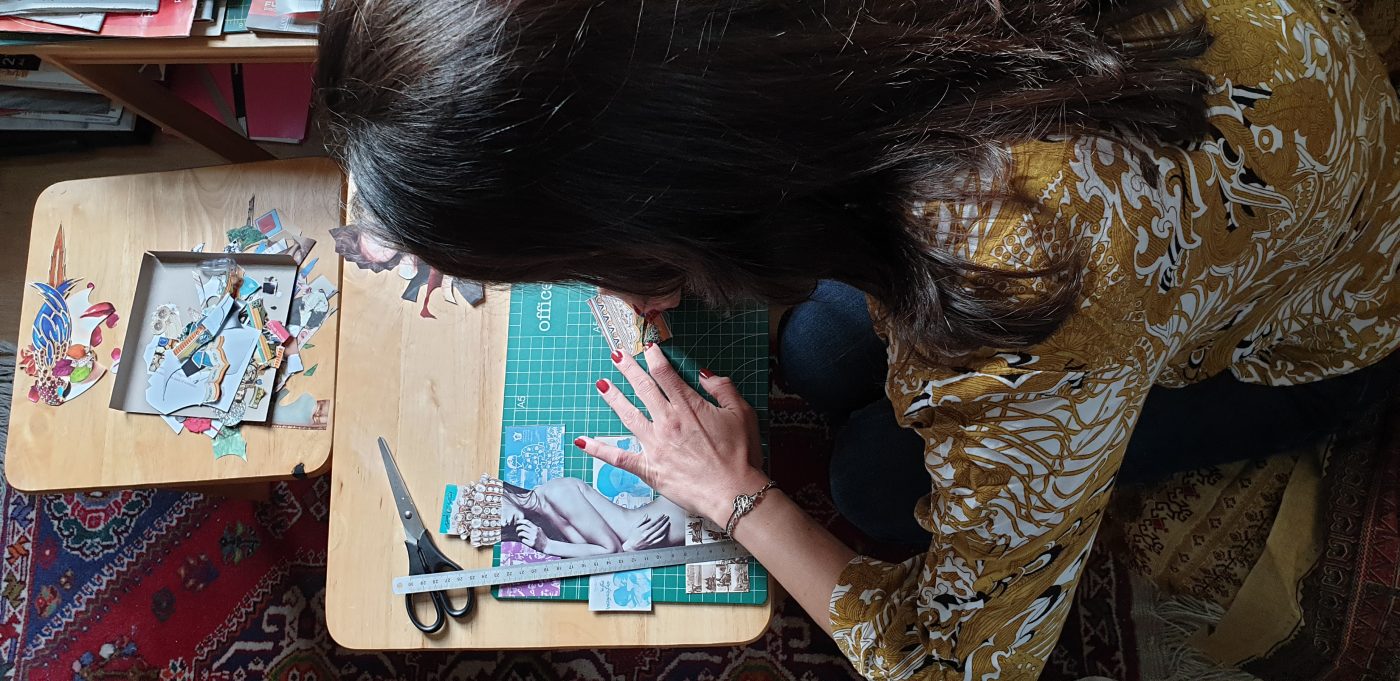
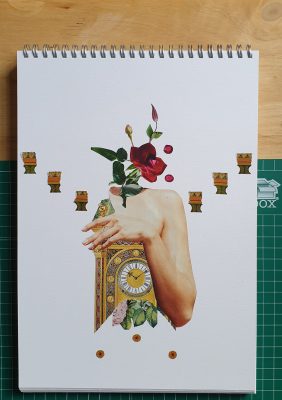
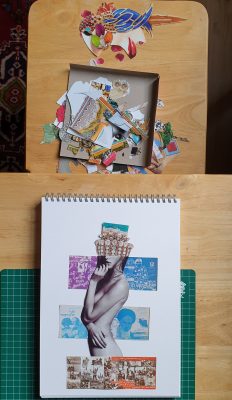
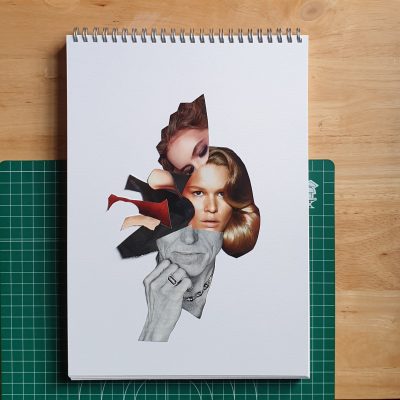
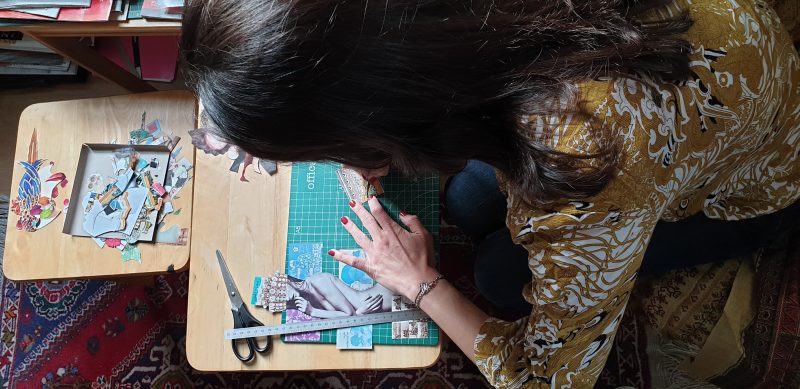
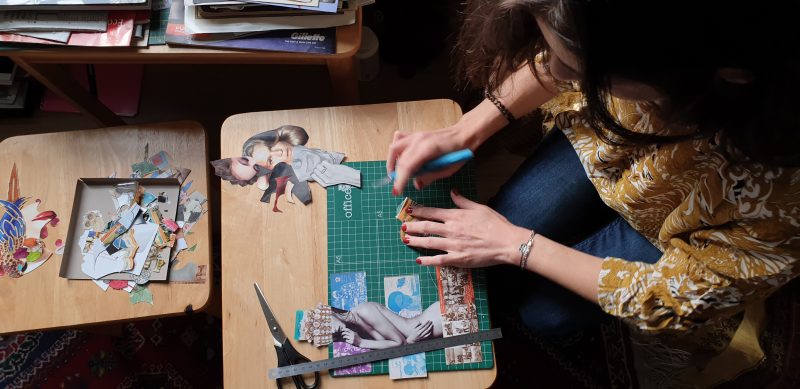
That was so inspiring. What an exquisite result from a phenomenal journey. Thank you Dorsa, thank you unseensketchbooks!! I feel my art practice has been properly well fed!!